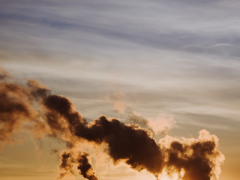Inadequate progress on climate action since Glasgow
Since the Glasgow climate summit (COP26) governments have made little progress in terms of strengthening short term policies, a new UN Environment Programme (UNEP) finds. Last year all countries promised to strengthen their Nationally Determined Contributions (NDCs) but NDCs submitted this year take only 0.5 gigatonnes of CO2 equivalent, less than one per cent, off projected global emissions in 2030.
This lack of progress leaves the world on course for a temperature rise far above the Paris Agreement goal of well below 2°C, preferably 1.5°C. Unconditional NDCs are estimated to give a 66 percent chance of limiting global warming to about 2.6°C over the century. For conditional NDCs (mainly conditional on developing countries receiving sufficient financial support) this figure is additionally reduced to 2.4°C. Current policies alone would lead to a 2.8°C rise.
“We see little progress on strengthening short term policies, but many more countries have adopted net-zero goals in the past year. If countries manage to bring their short term policies in line with these long term goals, limiting global warming to 1.8 °C would be possible. This would, however, mean a huge additional effort to cut emissions in the coming decade,” according to Michel den Elzen, senior researcher at PBL. Den Elzen contributed to the evaluation of current policies, the calculation of the emissions gap and global emissions projections in UNEP’s latest report. Each year, the Emissions Gap Report assesses the gap between estimated global emissions resulting from the NDCs and emissions consistent with the Paris Agreement targets of limiting global warming this century to well below 2 °C and pursuing 1.5 °C. It establishes the gap between promised and needed emission reductions.
Net-zero pledges on the rise
Net-zero pledges — and, crucially, their effective execution — could make a big difference, but current plans are insufficiently concrete and not reflected in NDCs. A total of 87 countries plus the EU (up from 49 last year) have pledged a net-zero target, meaning that their contribution to global greenhouse gas emissions should be net-zero by 2050 or shortly thereafter. This covers 79 percent (up from half last year) of global domestic greenhouse gas emissions. In the best-case scenario, full implementation of unconditional NDCs and additional net-zero emissions commitments point to only a 1.8°C increase. However, this scenario is not currently credible based on the discrepancy between current emissions, short-term NDC targets and long-term net-zero targets.
Large scale transformation could put world on a path to success
To meet the Paris Agreement goals, the world would need to reduce greenhouse gases by unprecedented levels over the next eight years. Unconditional and conditional NDCs are estimated to reduce global emissions in 2030 by 5 and 10 per cent respectively, compared with emissions based on policies currently in place. To get on a least-cost pathway to holding global warming to 1.5°C, emissions must fall by 45 per cent over those envisaged under current policies by 2030. For the 2°C target, a 30 per cent cut is needed. Such massive cuts can only be attained by a large-scale, rapid and systemic transformation in electricity, industry, transport, buildings and food.




